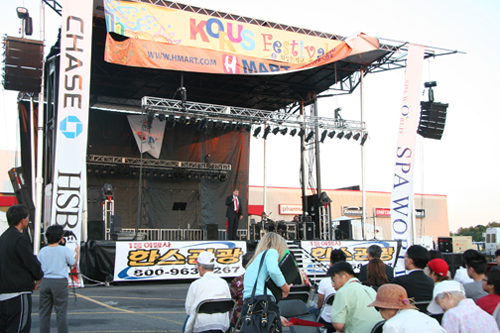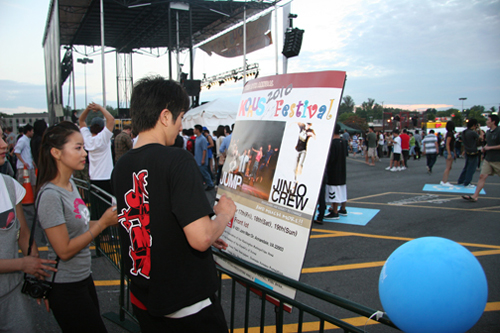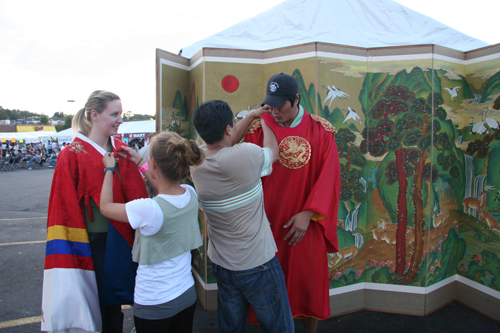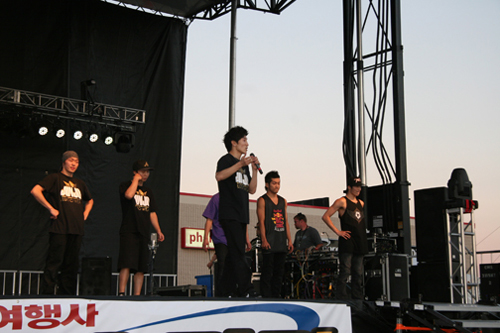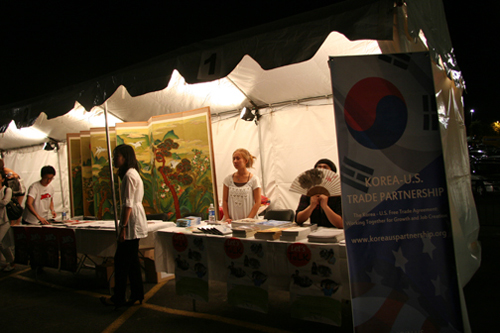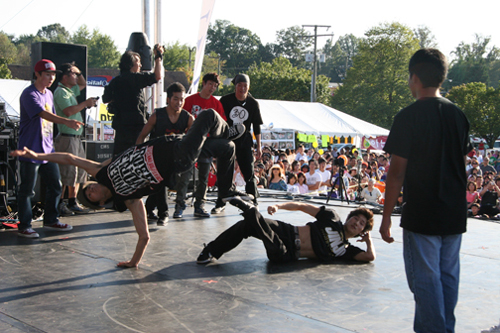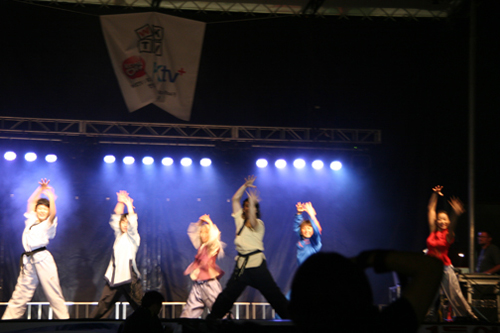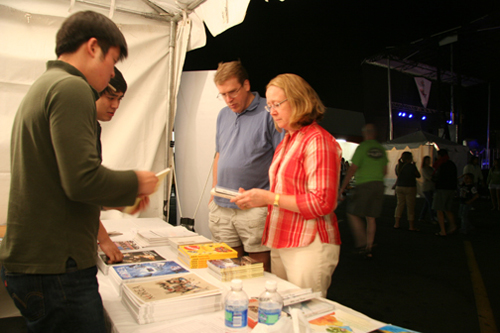However, anyone attending the 2010 KORUS Festival, held throughout the weekend of Sept 17 in
Scanning the audience of at least 1,000 people on Saturday evening, part of more than 20,000 visitors throughout the 3-day annual event, a throng of teen- and middle-agers of Korean heritage alike were clearly engaged, listening attentively, but always politely—even admiringly—regardless of the performer’s shortcomings.
This phenomenon reflects a common Korean tradition at individual family gatherings in which members gather round, often seated on the floor (heated, of course, as is the case with most Korean homes), and take turns singing to entertain one another. There usually isn’t a set order, but all must sing. This occurs without excessive embarrassment, awkwardness, or arm-twisting.
For many Americans uninitiated into Korean culture, such a scenario might seem…unlikely, to put it mildly, in their own families; an individual has the liberty to sing or not to sing, might be the reaction, especially if one has no ability to sing.
But it is not the skill or finesse that matters in the Korean family, or community. Often times, the contestant’s emotional investment in the performance or sheer boldness in defiance of the urge to not draw attention to oneself is what most earns the affection of a Korean-minded audience. Even a poor performance, in terms of confidence, ability, or both, can draw great admiration because it evidences the singer’s willingness to struggle publicly, take a risk, and to try his or her best regardless of the challenges being faced.
Plus, extra bonus points for singing in Korean if it’s not your native language. Some performances never lose their raw appeal.
By Adam Wojciechowicz
